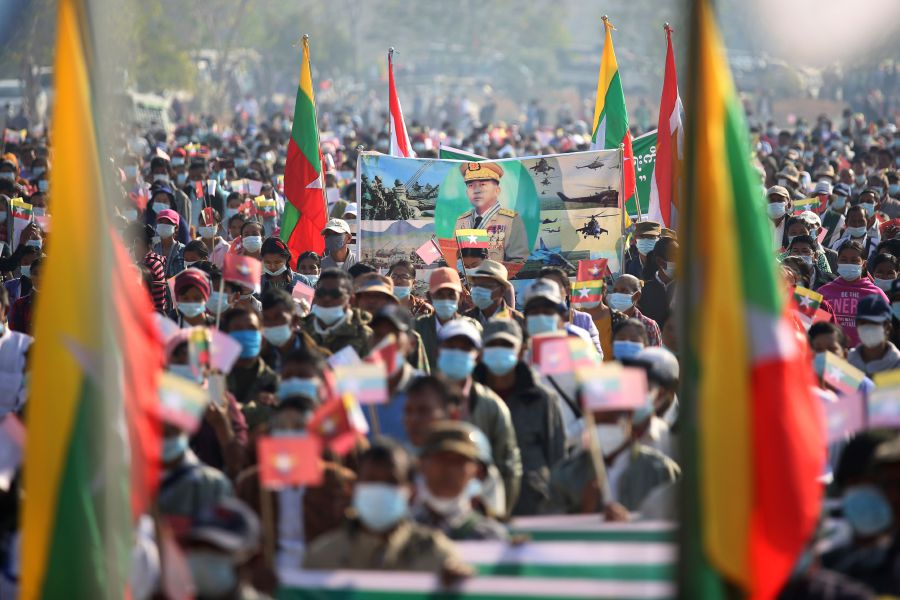Thailand is doing a "Cambodia" on Asean by engaging directly with Myanmar's military regime. This is not good for the bloc for two reasons.
Firstly, it will blunt Asean's efforts to end the civil war there through its Five-Point Consensus.
Secondly, Bangkok's direct engagement with Naypyidaw will make Asean irrelevant, putting into question its future as a multilateral body. Begin with the Five-Point Consensus.
Two years ago on April 24, Myanmar junta leader Senior General Min Aung Hlaing agreed with nine Asean members that he will do five things: put an immediate end to violence; start a dialogue with all political parties; accept the appointment of Asean's special envoy to Myanmar; allow humanitarian assistance into the country; and, finally, allow the envoy to hold discussions with all parties deemed necessary.
Except for the appointment of the special envoy and some nominal humanitarian assistance, the consensus remains like a "promissory" note with a difference: Min Aung Hlaing's promise to Asean doesn't get delivered even on demand.
We aren't surprised. There are a few among its members who are sending the wrong signal to the recalcitrant general. When the military regime overthrew the elected government in an illegal coup on Feb 1 two years ago, the few wanted the military coup to be treated as an internal affair. Cambodia was one of them.
When it assumed the chair of Asean last year, Phnom Penh decided to go it alone by dealing directly with Min Aung Hlaing. Now, Thailand's caretaker government is following the divisive tone set by Cambodia, though Bangkok is not the chair. This year's Asean chair Indonesia had rightly decided to stay away from the Sunday and Monday Myanmar talks, which were given the appearance of an Asean event. So did Malaysia and Singapore.
No one is questioning Thailand's right to engage Myanmar directly on a country-to-country basis, but it should not give the impression that it is doing so on behalf of Asean. With Cambodia and Thailand's bilateral moves, Min Aung Hlaing has no incentive to implement Asean's consensus. Little wonder he is on a killing spree. According to the Peace Research Institute of Norway, the military regime has killed 6,000 civilians since the coup started.
Phnom Penh and Bangkok may not want to admit it, but their "go-it-alone" diplomacy may eventually make Asean irrelevant, our second point. This will be a pity. Take the idea of Asean being a common market where people, goods and services move across one border. True, it was last supposed to happen in 2015. But again, it didn't because of divisions within the bloc. Asean appears incapable of taking a common stand on almost anything. Take the Asean Five-Point Consensus. It was a consensus only in name. It is now clear it was a 7-3 decision.
Even the South China Sea maritime disputes of a few Asean members with China didn't get the unanimous support they deserve. A few stood in the way of a strongly-worded Asean statement criticising China for its aggressive moves there. Multilateralism isn't working for Asean. It isn't even a work-in-progress. Stillborn, may just describe it.
Asean's irrelevance is headed for a two-stage disappearance. In the first stage, Asean members will engage in bilateral diplomacy in the pretext of multilateralism, like Cambodia and Thailand are doing. At the second stage, even this pretext will be discarded.











